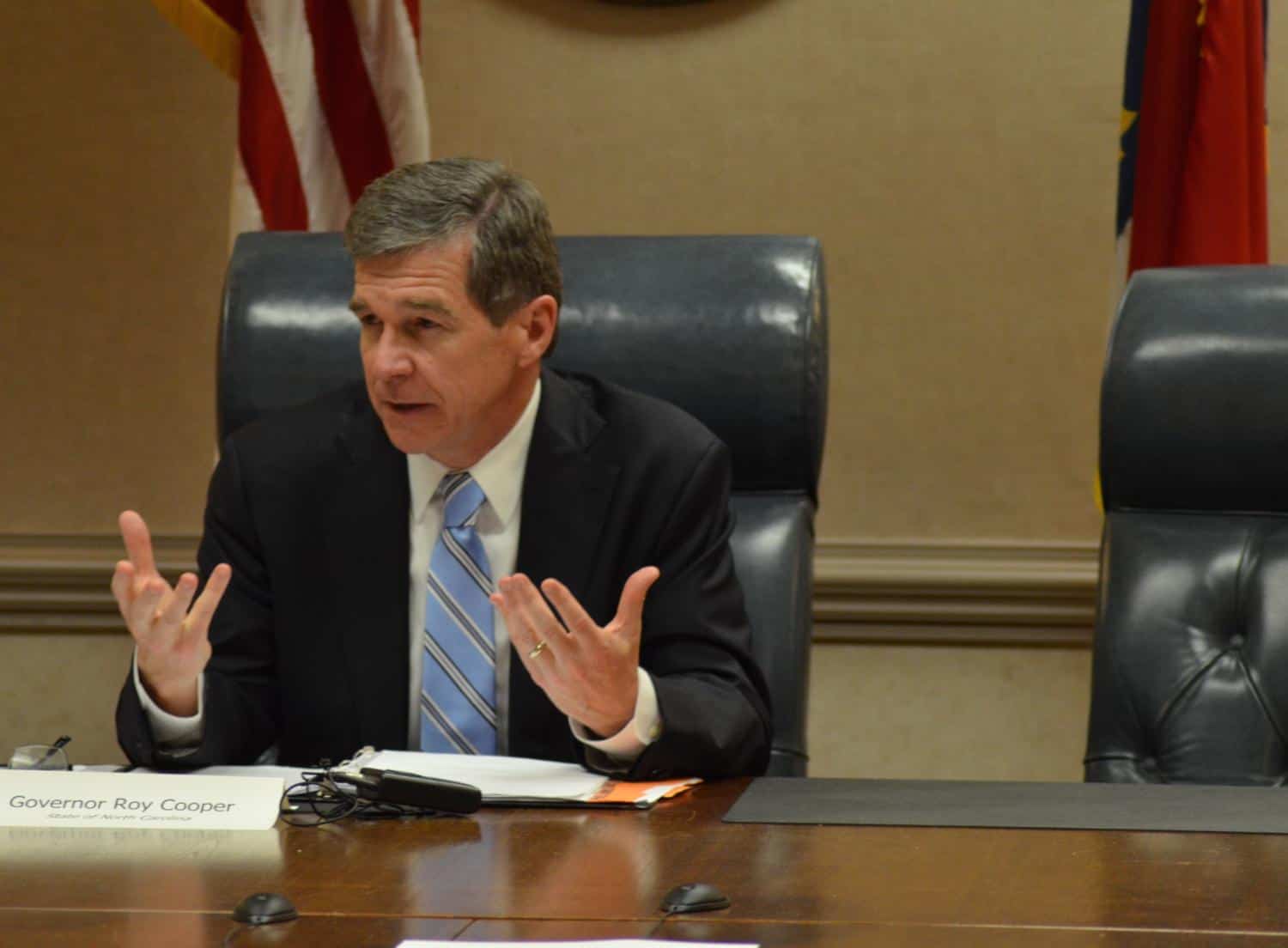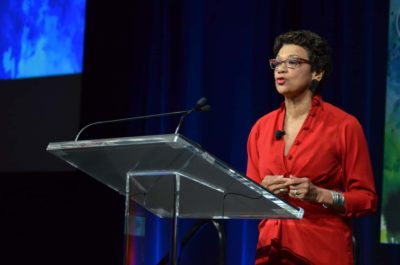Democratic Governor Roy Cooper held his first Education Cabinet meeting yesterday, calling on members to work together and eschew ideology and politics.
“We all owe the citizens of this state to put all that political stuff aside … regardless of what happens, we need to be working in the same direction,” he said.
But politics did crop up earlier in the meeting. When asked to introduce his staff, cabinet member Mark Johnson, the state’s Republican Superintendent of Public Instruction, made introductions and then pointed out one significant omission.
“And maybe one day I’ll have a chief of staff,” he said.
The comment is a reference to a lawsuit the State Board of Education is engaged in over legislation passed during a special session in December that transferred some of the State Board’s power to the superintendent. Under the law, Johnson would have hiring authority on certain personnel that the State Board currently selects. One of those positions is his own chief of staff. He can make recommendations, but the ultimate decision rests with the State Board. There is a temporary restraining order in place halting the transfer of powers until a court can decide the case. The hearing is scheduled to start on June 29.
Johnson is a party to the lawsuit and has been critical of the State Board’s position with regards to the legislation and lawsuit. State Board Chair Bill Cobey, a Republican, is also a member of the Education Cabinet and attended the meeting yesterday.
The same law transferring powers to the superintendent also limits the power of the governor, but that is the subject of a separate lawsuit.
The bulk of the Education Cabinet meeting, however, was about deciding on the Cabinet’s focus on as it meets regularly during Cooper’s tenure. In particular, Cooper was interested in talking about early childhood education, but the group also talked about other subjects such as workforce development, high school diploma integrity, graduation rates, and how to better gather data on what’s happening with the state’s students.
On the issue of early childhood education, Cooper said the Education Cabinet might be more about communicating rather than just trying to find money for programs. For instance, he said the business community is starting to become more interested in the subject.
“A number of CEOS have looked at the data and said this is important for us to place an emphasis,” he said.
Johnson shared his belief about the importance of early childhood education, noting that North Carolina has great teachers that work hard and are often able to get students to grow a year academically every year. But problem persist when students do not come into a grade at grade level.
“Many students are coming into kindergarten, one, two, even three years behind where we’d expect them to be,” he said.
He noted his launch of NC Reads in April as one way the Department of Public Instruction is trying to tackle the issue. NC Reads aims to bring resources, people, and organizations together to raise K-3 reading proficiency levels.
“If everybody is moving in the same direction together, we’re going to make that much more of a difference for students,” he said.
Cabinet member and UNC System President Margaret Spellings noted that North Carolina already has great early childhood learning resources, but the key is to get all the departments that oversee them to work together. She noted the state has “world-class” pre-k education programs at state universities, but said there are programs outside of the traditional education infrastructure that can help. She mentioned “Reach Out and Read,” a program which encourages physicians to prescribe books and reading to children.
She said raising literacy rates among young children will necessitate looking at and incorporating “research based models like that where we can engage our medical schools and our physician network generally.”
Cooper said NC Pre-K enrollment in the state is currently around 22 percent, and he would like to see it get up to 50 percent.
The Education Cabinet will likely meet again in 3 and a half months, Cooper said.
The members of the Education Cabinet are:
- Superintendent Mark Johnson
- UNC System President Margaret Spellings
- State Board of Education Chair Bill Cobey
- NC Community College System President Jimmy Williamson
- NC Independent Colleges & Universities President Hope Williams
- Department of Health and Human Services Secretary Mandy Cohen
- Secretary of Commerce Tony Copeland



